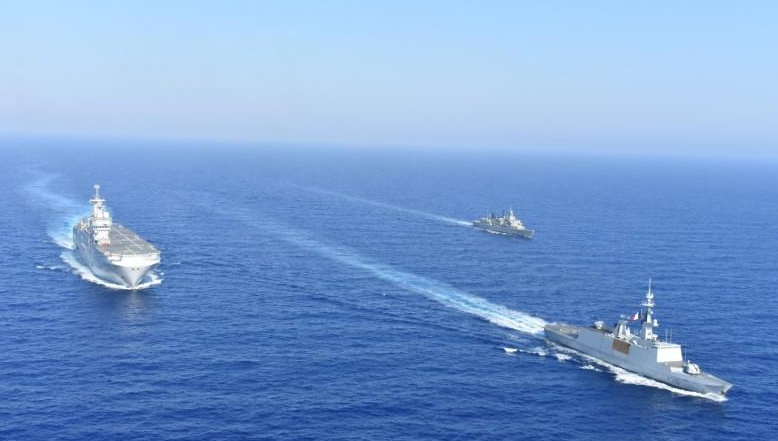EU set to sanction Turkey over ships in disputed east Med exploration area
Berlin (Reuters) – The European Union is preparing sanctions against Turkey that could be discussed at the bloc’s next summit on Sept. 24 in response to the eastern Mediterranean dispute with Greece, the EU’s top diplomat said on Friday.
The measures, meant to limit Turkey’s ability to explore for natural gas in contested waters, could affect individuals, ships or the use of European ports, Josep Borrell said. The EU would focus on everything related to “activities we consider illegal”, he added.
Borrell spoke in Berlin where EU foreign ministers met to discuss support for Greece after Athens ratified a pact on its maritime boundaries to counter Turkey’s claims to energy resources in the region.
In a fresh sign of tensions, Turkey’s Defence Ministry said Turkish F-16 jets on Thursday prevented six Greek F-16 jets which took off from the island of Crete from entering an area where Ankara is conducting maritime activity.
Greek media reported that Turkish fighter aircraft had harassed Greek jets which were returning to base on Crete. Accusations and counter accusations on military issues are common between the two NATO allies.
In Berlin, Borrell said the bloc was ready to sanction Turkish vessels, block their access to EU ports and cut off supplies.
Possible Sanctions
“We can go to measures related to sectoral activities … where the Turkish economy is related to the European economy,” Borrell told a news conference, referring to possible sanctions.
Turkey’s foreign ministry said the EU had no basis for its stance and rejected Greek maritime claims. President Tayyip Erdogan told NATO Secretary-General Jens Stoltenberg Turkey will continue to protect its rights and interests everywhere.
“Our President told him NATO must fulfill its responsibility against unilateral steps which disregard international law and harm regional peace,” Erdogan’s office said in a statement.
France has notably taken a tough stance on Turkey’s actions in the eastern Mediterranean and French President Emmanuel Macron said on Friday this was to set red lines because Ankara respects actions not words.
Borrell and German Foreign Minister Heiko Maas said the EU first wanted to give dialogue a chance to cool tensions.
Turkey is a formal candidate to join the EU, although its candidacy is at risk and could be withdrawn as a type of sanction, diplomats have said.
Two senior EU diplomats told Reuters that foreign ministers agreed to leave any decision to EU government leaders, who are set to meet for a two-day summit from Sept. 24.
“Nothing will be decided before the September European Council,” a senior diplomat said, although the envoy added that Turkey could also be rewarded with greater access to the EU’s market of 450 million consumers if it curtailed its drilling.



